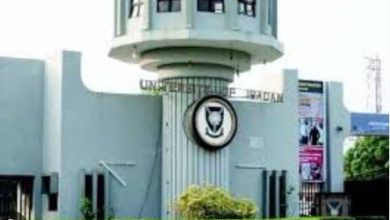Deficient funding for the educational sector in Nigeria is an overstressed malaise which festered during the dark, anti-intellectual days of military dictatorships, and which successive civilian administrations have contributed only very modest efforts to reverse. The result, though still largely lost to the nation’s policy makers and administrators and even many among the citizenry, is that ineptitude and mediocrity are gradually permeating and entrenching themselves in several of the country’s organised systems and slowing down her march to sustainable development and progress.
Worst hit at the tertiary level are the polytechnics and colleges of education which many Nigerians have been driven by deficient information to confer some inferior status on, a development that tends to sometimes moderate even official actions towards them, and breed negative attitudes from prospective students to these institutions. And instead of helping to educate the growing assembly of the uninformed and revamp the awareness about their very unique, significant, and indeed, inevitable importance to national growth and march to greatness, practitioners in the sector appear to have lately begun to eagerly gobble down the worst misinformation about their institutions and are now scrambling to lose the very essential features that had been carefully designed to define their uniqueness and relevance, all in the mad rush to seek equal status and similar features with the universities, thereby, negating the very essence that informed their creation.
Sadly, what appears to be the greatest aspiration of many polytechnics and colleges of education today is to find universities willing to affiliate with them in order for them to assume the statues of degree-awarding institutions and attract more students obsessed with university education. The problem usually associated with this clearly misdirected aspiration is that the universities compel them to modify their courses and model them after the ones offered at the degree-awarding institutions, thus significantly altering the very essence of polytechnics and colleges of education curricula which are designed to equip them to produce standard manpower specially trained for very important roles in the critical sectors of the economy.
In a paper he presented at the Education Summit of Igbajo Polytechnic, Osun State, in October 2015, the then Registrar and Chief Executive Officer of the Joint Admissions and Matriculation Board (JAMB), Prof Dibu Ojerinde, explained that the “polytechnic education is important because it emphasises practice-based learning and the acquisition of certain life skills. Cognisance should be taken of the policy of the Federal Government as it affects the encouragement given to technical education in Nigeria.”
According to him, “if policy on technical skills is adopted, the polytechnic education would help in providing manpower to the nation’s industries and firms and consequently reducing dependence on foreign expertise for industrial development.”
More education and enlightenment must be mounted to reeducate the populace on the special roles of these institutions. Polytechnics and colleges of education must be steered back to the original and very significant visions that inspired their creation. No country can excel without people with the requisite technical knowledge to drive the critical sectors of industries which will in turn trigger the overall growth of the country’s economy.
To achieve these objectives, adequate funds must be injected into these institutions to fully actualise the practice-based education that polytechnics offer and the quality teacher training procedures colleges of education are set up to pass their students through. They must be provided with the required tools to expose their students to all the machinery they require to fully assimilate and master their lessons and be able to commendably put into practice what they have been taught. It is this inability to adequately fund and provide learning materials to these institutions that have blurred the essential difference between theory-based learning and the practice-based one and diminished the attraction of the latter, a development crying for urgent reversal.
Colleges of education on their part are set up to train quality educators to provide the basic, foundational knowledge for the nation’s future leaders, technocrats and industry drivers. The accountants, lawyers, economists, engineers, doctors, architects, pilots, etc., we have today are all products of teachers who moulded them from their formative ages to become what they are today. When adequate funding is denied teacher education institutions, they are rendered incapable of obtaining the very essential tools they require to disseminate quality teaching. Indeed, when this is the case, almost every sector of the economy suffers, because, this would certainly rub off on the quality of educators they would produce, since the knowledge they would disseminate would issue from the deficient education they had received.
Efforts, therefore, must be made to achieve a significant change of perception about polytechnics and colleges of education and raise their rating and appreciation before the public and the government. According to the former Rector, Osun State College of Technology, Esa-Oke, Oluyemi Oke, “society should stop looking at students who opted for polytechnic education [and that of colleges of education] as those that cannot make it to the university or have failed academically.”
Government must fund them adequately to realise their founding objectives and restore their attractiveness.



